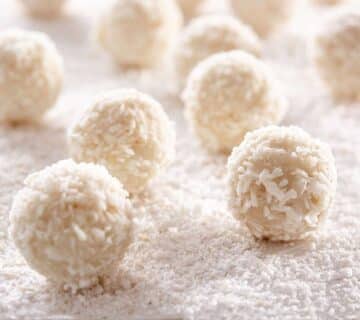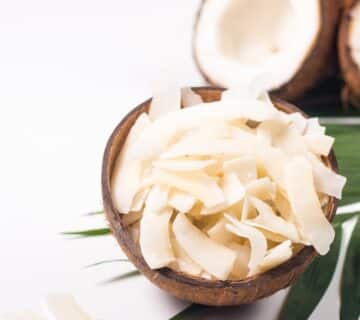Coconut products are a fantastic addition to any kitchen, offering a wide range of uses for cooking and baking. From desiccated coconut to virgin coconut oil and RBD coconut oil, these coconut-derived ingredients bring a unique flavor and health benefits to your dishes.
Whether you’re making a tropical dessert, sautéing vegetables, or even baking, coconut products can elevate your recipes. If you’re not sure how to cook with coconut products, don’t worry! Let’s dive in and discover some easy and delicious ways to use these versatile ingredients in your cooking.
How to Cook with Coconut Products
Coconut products are easy to find in tropical countries like Indonesia, which is one of the biggest coconut producers in the world. The coconuts from Indonesia are known for their high quality, and Sari Coconut, a trusted supplier of coconut products, uses these top-notch coconuts to create their range of products. Now, let’s explore some simple and tasty ways to cook with coconut products!
1. Desiccated Coconut
Desiccated coconut is finely grated, dried coconut flesh that’s widely used in baking, desserts, and savory dishes. Desiccated coconut is a versatile ingredient that enhances both sweet and savory dishes.
In baking, it adds natural coconut flavor and a chewy texture to cakes, cookies, muffins, coconut macaroons, and sponge cakes. It can also be used as a coating for truffles, energy balls, or fried foods, providing a delightful crunch.
For savory applications, a tablespoon added to curries or stews brings subtle sweetness and texture, while as a topping, it elevates oatmeal, yogurt, or smoothie bowls.
To maximize its flavor, toast it lightly in a pan for a nutty aroma, and always store it in an airtight container to maintain freshness and prevent moisture absorption.
2. Coconut Sugar
Coconut sugar comes from the sap of coconut palm trees and has a delicious caramel-like flavor. It’s a great alternative to regular sugar because it has a lower glycemic index, which means it has less impact on your blood sugar levels.
You can use coconut sugar just like regular sugar in your recipes, you can substitute it 1:1 in baked goods like cookies, cakes, and muffins.
Its rich, molasses-like taste is perfect for making caramel or butterscotch sauces, and it can add depth to savory sauces, too. For example, try using it in soy or fish sauces in Asian dishes to balance the flavors.
Coconut sugar also works well in drinks like coffee, tea, or smoothies. It dissolves easily, making it ideal for liquid recipes. Just keep in mind, its darker color might slightly change the look of lighter baked goods, but the flavor makes it worth it!
3. Virgin Coconut Oil
Virgin coconut oil is unrefined, which means it keeps the natural coconut aroma and taste. It’s perfect for cooking at high heat and adds a tropical twist to your dishes.
You can use it to sauté vegetables, seafood, or chicken, and it’s a great substitute for butter or vegetable oil in baked goods like brownies, banana bread, or granola.
If you want to add a bit of creaminess to your smoothies, just stir in a teaspoon of virgin coconut oil. It also makes a tasty, coconut-flavored topping for freshly popped popcorn! Keep in mind, virgin coconut oil solidifies when it’s cooler than 24°C (76°F), but you can easily warm it up to return it to liquid form. Just be careful not to overheat it, so it keeps its natural flavor and health benefits.
4. RBD Coconut Oil
RBD (Refined, bleached, and deodorized) coconut oil has a mild flavor, which makes it super versatile for all kinds of cooking. Its high smoke point makes it perfect for frying things like fried chicken, tempura or donuts without burning.
Because it has a neutral taste, you can use RBD coconut oil in everyday dishes like stir-fries, sauces, or roasted vegetables without changing their flavors.
It’s also a great dairy-free option, so you can swap it for butter in vegan recipes or if you have a dairy allergy. To keep it fresh for longer, just store RBD coconut oil in a cool, dry place.
Coconut Products are Good for Health!
Cooking with coconut products is a fun and exciting way to add flavor and health benefits to your meals. Whether you’re baking with desiccated coconut, sweetening your treats with coconut sugar, or frying up a storm with virgin or RBD coconut oil, these ingredients can really take your cooking to the next level.
When it comes to quality, Sari Coconut ensures that every product is made with the best ingredients, so you can trust their coconut products to meet high standards.
If you’re cooking at home or working in the food industry, Sari Coconut makes sure their products are safe and ready to be shipped worldwide, following all international export procedures.
As a fact, coconut products are incredibly easy to use in the kitchen. For example, coconut oil is perfect for sautéing since it’s stable and won’t break down when heated. Plus, with its natural fragrance and clear consistency, coconut oil makes a great butter substitute in many recipes, adding a unique tropical twist!
FAQ
Can I use desiccated coconut in place of fresh coconut?
Yes, desiccated coconut is an excellent substitute for fresh coconut in most recipes. However, its texture is drier, so you may need to adjust the liquid in your recipe.
Is coconut sugar healthier than regular sugar?
Coconut sugar has a lower glycemic index than white sugar, meaning it causes smaller spikes in blood sugar levels. It also contains trace minerals, making it a slightly healthier alternative.
Can I use virgin coconut oil for deep frying?
While virgin coconut oil can handle moderate heat, RBD coconut oil is better suited for deep frying due to its higher smoke point and neutral flavor.
What’s the difference between virgin and RBD coconut oil?
Virgin coconut oil is unrefined and retains the natural coconut flavor and aroma, while RBD coconut oil is refined, neutral in flavor, and ideal for high-heat cooking.
Can coconut products fit into vegan diets?
Absolutely! Coconut products are plant-based and widely used in vegan cooking and baking.






